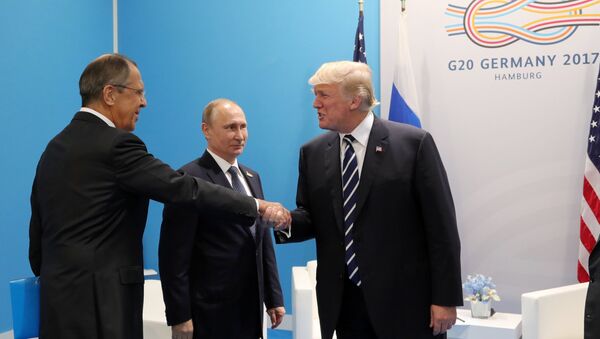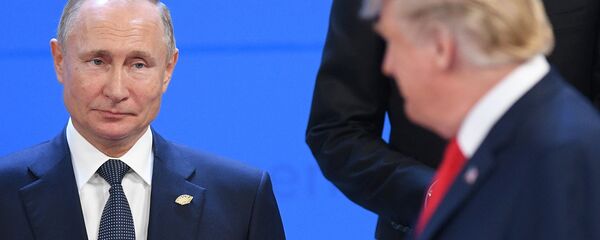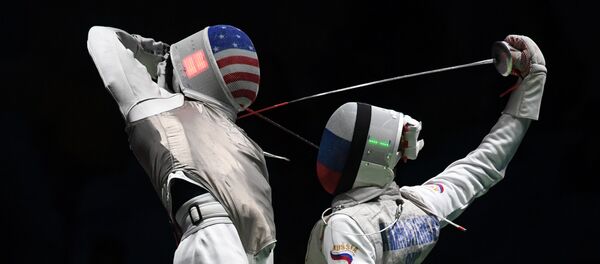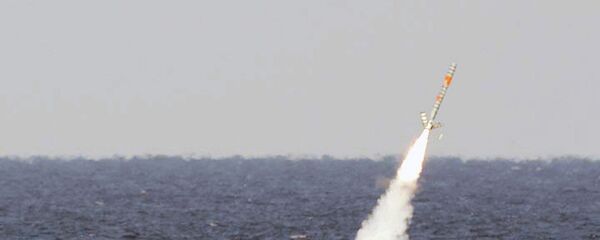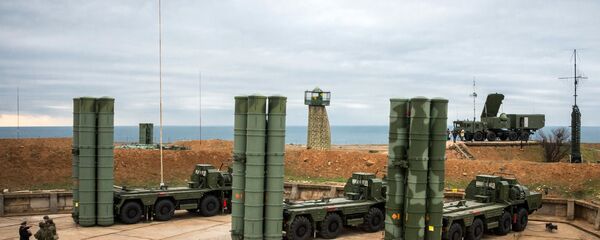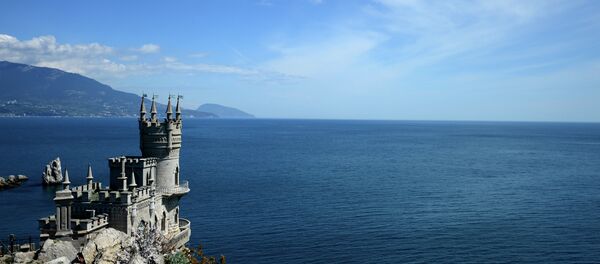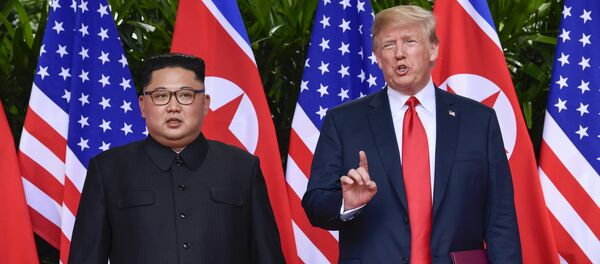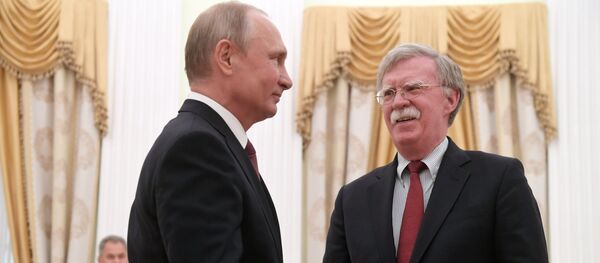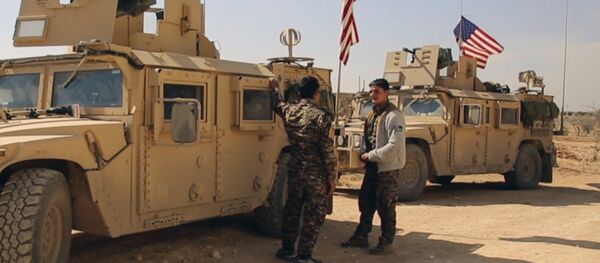In an interview with Sputnik on the eve of 2019, Russian Foreign Minister Sergei Lavrov, spoke about whether we should wait for further alienation, about Moscow's possible response to Washington scrapping the INF Treaty, the price of a potential conflict between Russia and the USA, about presidential elections in Ukraine, as well as the situation around the Democratic People's Republic of Korea (DPRK) and the Syrian Arab Republic.
Sputnik: Next year will again be almost a pre-election year in the United States. Should we expect a new cooling in relations? Can we hope to maintain at least a modest dynamic of contacts at the highest level? Taking into account the failed meetings in Argentina, where and when approximately could they occur? Is it true that they might be held in January?
Of late, the degree of their impact does not even depend on what stage of the electoral cycle the United States is at. Of course, one can expect that as the next presidential election in November 2020 approaches, attempts to play the "Russian card" will be undertaken by individual politicians in Washington more actively and more persistently. We hope that this will not lead to a further loosening in the foundation of bilateral ties, which are not in the best condition anyway.
We consistently advocate developing a normal, predictable dialogue with the United States based on the principles of mutual understanding and respect for interests. So far, it has not been possible to move in this direction because of Washington's unfriendly actions, incessant attempts to exert pressure on us with the help of economic, political, military, and other tools.
READ MORE: Russian Foreign Minister Believes US Policy on Russia Was Delegated to Bolton
As a result, work in important areas on the bilateral and international agenda, including those related to maintaining stability and security in the world, has stalled.
If we speak in a broader, if you like, in a philosophical sense, the main problem in our relations is that the United States has never considered them as valuable. Russia for the American political establishment is an object.
We are demonised in order to keep Europe in check and to strengthen the trans-Atlantic bond. Or, for example, they are now seriously discussing how to use Russia against China in their favour. Yes, and attempts to inspire a change of power in our country or a change in Russian policy — and many in Washington suffer from such an illusion — are dictated by the desire to make us a tool to serve US interests.
For our part, we build inherently valued relations with any state. We are ready to act in the same spirit with America. I repeat: the potential for constructive bilateral interaction is enormous. However, it has remained unfulfilled for many decades. I think our people deserve much better than what we have now.
With regard to contacts at the highest level, President Vladimir Putin, at a press conference following the G20 summit in Buenos Aires, said that he was open to meeting with the US president when the American side was ready. Now it is difficult to say when and where such contacts may take place.
Sputnik: The point, apparently, comes down to the scrapping of the INF Treaty. Are we negotiating with the US and the EU about any guarantees that such missiles will not appear in Europe? Are our partners ready to give such legally binding guarantees? If not, what will be our answer? Rockets in Cuba again?
Sergei Lavrov: We are convinced that the collapse of the INF Treaty can seriously harm international security and strategic stability. We have to say in warning: we cannot and will not ignore the deployment of new American missiles that threaten us and our allies. There should be no doubt that we have the necessary set of means to ensure our own security, and we can also further strengthen our defence capabilities. However, Russia, like any other sensible country, is not interested in an arms race and new "missile crises".
We have officially offered to start this in a recent letter from Sergei Shoygu to the chief of the Pentagon; we have also repeatedly proposed beginning a professional dialogue on the INF Treaty on a contact level between the Ministry of Foreign Affairs with the State Department. No answers have been received yet.
READ MORE: Putin Says US Has No Reason to Keep Russian National Butina in Custody
During the Helsinki summit on July 16, the Americans were handed concrete comprehensive proposals regarding the agenda for a long overdue in-depth discussion about strategic stability and arms control. Unfortunately, there has so far been no desire to negotiate with us from the US side. They shy away from dialogue, they do not offer any guarantees, apparently preferring to have completely "free hands".
In general, we are ready to work in various formats with the participation of all countries that are aware of their responsibility for peace and security.
Sputnik: How likely is the possibility of a direct armed conflict between Russia and the United States, Russia and NATO? Is our country preparing for such a development of events?
At the same time, we are compelled to state that, being obsessed with their own geopolitical ambitions, Washington and its allies are not ready to adapt to global realities that are not changing in their favour. Hence the desire to restrain these processes in every way and having a more aggressive approach in foreign affairs than before.
Confrontational pressure is being exacerbated, dialogue channels are being frozen. Of particular concern are steps to break up major international agreements on strategic stability.
Such a conflict, based on instruments of power inevitably leads to a further imbalance of the global security architecture and contributes to an arms race. A situation may well arise when the price of an error or misunderstanding becomes fatal.
Of course, we are taking the necessary steps to protect our national interests and strengthen the country's defence capability. President Putin has spoken about this more than once. At the same time, we hope that common sense will still prevail. After all, with all the diverging positions, both Russia and the states of the West jointly bear a huge part of the responsibility for the future of all mankind, for the search for effective answers to the many challenges and threats of our time.
READ MORE: Russian Embassy Slams UK Over Warship's Ukraine Visit 'Sending Message' to Putin
We urge Western leaders to act in a predictable way, to scrupulously abide by the principles and rules of international law, to rely on the United Nations Charter. Then such issues will disappear of their own accord.
Sputnik: Elections for the President of Ukraine will be held in spring. The main contenders are well-known. Is there anyone among them that inspires hope for improving relations between Moscow and Kiev? Or should we not wait for this in any case? Is Russia then ready for such tough measures as the introduction of a visa regime, a break in diplomatic relations?
Sergei Lavrov: As for the main candidates for the presidency, I will refrain from any comments. Elections are an internal Ukrainian issue. But we, of course, cannot but express concern about the situation in which preparations for these elections are being made. In Ukraine, the level of Russophobia imposed from above is simply outrageous.
I would like to hope that in Kiev sooner or later adequate people will come to power, capable of constructive dialogue and with a responsible perception of reality. We have not taken any unilateral actions to curtail relations with Ukraine, and we don't intend to take any. On the contrary, we are in favour of preserving and creating conditions for the revival of multi-faceted ties and contacts.
READ MORE: Ukraine's 'New Church' Head Speaks of US Support in Talk With Russian Prankster
Sputnik: In the outgoing year, significant progress on the situation around North Korea has been achieved. When will there be a subsequent weakening of sanctions against North Korea? Will we seek to lift the ban on North Korean workers as one of the first measures? And is it not the time for the resumption of the Six-Party Talks format? Is a Six-Party Talks Summit possible? When, and under what conditions?
Sergei Lavrov: Indeed, this year there have been positive trends on the Korean Peninsula. The situation there as a whole developed in line with the "road map" of the settlement worked out by Russia a year earlier together with China. Military activity has noticeably decreased due to the moratorium on nuclear tests and missile launches imposed by the DPRK, and due to the decision by the United States and the Republic of Korea to postpone large-scale military manoeuvres.
Inter-Korean relations have improved, the first-ever summit between the leaders of the United States and the DPRK has been held. Russia as an integral participant in the overall process of resolving the situation around the Korean Peninsula has contributed to the achievement of these results and will continue to do so — there is still a lot of work ahead.
We also support the desire of Seoul and Pyongyang to build up relations, to transfer inter-Korean cooperation into a practical plane. In particular, we are very interested in resuming work on a trilateral project on connecting the Trans-Korean Main Line, which the Korean parties are now studying for restoration and modernisation, with the Trans-Siberian Railway.
READ MORE: North Korea Eliminates 10 Observation Posts in Demilitarised Zone — Seoul
We believe that a gradual revision of the sanctions against the DPRK should be an important part of these processes. This is not about abolishing international restrictions at once — it will be possible to do simultaneously with the achievement of the complete denuclearisation of the Korean Peninsula.
But it is also impossible to delay the launch of the revision of the existing sanctions regime. We cannot pretend that Pyongyang has not taken any constructive steps in the pursuit of achieving a nuclear-free status of the sub-region. We are convinced that the UN Security Council should respond to them promptly and in a positive manner.
In this context, we urge other partners to abandon their own unilateral sanctions as soon as possible and in full in terms of cooperation with North Korea and illegitimate attempts to impose their implementation on other countries. This is clearly not conducive to the establishment of trustworthy relations between the parties to the settlement.
READ MORE: ‘Maximum Pressure': Pyongyang Reminds Trump Sanctions Will Fail
We are constantly discussing with all the countries involved the need to establish contacts in a multilateral format, analogous to the previous six-party process to resolve the nuclear problem of the Korean Peninsula. Of course, we do not insist that its work should be restored in the same way. But in principle, we are sure that the whole complex of problems of the sub-region can only be solved jointly on a multilateral basis.
I hope that the result of work with all partners will be the creation of a single multilateral mechanism for maintaining peace and security in Northeast Asia. We see great potential in it: perhaps, the leaders of the states of the region will begin to meet on a regular basis, to hold regional summits, as is the case within other regional and international structures.
Sputnik: In 2018, Syria was able to make significant progress, primarily in cooperation with Turkey and Iran. But there are still quite a few territories beyond the control of the Syrian government. Will we negotiate on those regions with the United States, for example, in the south of the country and East of the Euphrates, as we did so in Idlib with Turkey?
Sergei Lavrov: Relations with each of these parties have their own specifics. We cooperate with Turkey and Iran within the framework of the Astana format. This is an established, successful and internationally validated mechanism of interaction, based on the decisions of the UN Security Council on the Syrian settlement, particularly Resolution 2254.
Therewith the thesis is being realised that the future of Syria should be determined by the Syrians themselves within the framework of the political process conducted and carried out by them with international assistance.
An illustration of this approach is the Syrian National Dialogue Congress (SNDC) held in January 2018, which was the first truly inclusive inter-Syrian forum that gave dynamics to the political settlement process in the SAR, brought back out of stagnation the Geneva format and provided an impetus to work on a constitutional "dossier".
READ MORE: Daesh Presence in Syria is 'Manna to US' — Veteran War Journalist
Let me remind you that Astana "guarantors" acted as co-organisers of the SNDC. Recently, we handed over to UN representatives a list of candidates to the constitutional committee agreed upon through the mediation of Russia, Turkey, and Iran, between the government of the SAR and the opposition.
The achievement of the Russia-Turkey agreement on Idlib, enshrined in the Memorandum that was signed in Sochi on September 17, was made possible due to previous decisions taken in the framework of the Astana process on the creation of a de-escalation zone in this part of Syria with Turkish observation posts along its internal perimeter — and Russian and Iranian over the outer perimeter.
Thus, the presence of the Turkish military in this part of Syria is coordinated with the SAR government, which welcomed the aforementioned Sochi Memorandum. It was supported by the third guarantor of the Astana format, Iran.
In fact, we are talking about the American occupation of almost 30% of the country's territory. With the assistance of the United States in these areas, self-governing bodies are being created that do not subordinate to the central authorities. This leads to a destabilisation of the military and political situation in the country, hampering the settlement process.
READ MORE: Russian FM: US Troops Withdrawal Enables Outlook for Syria Political Settlement
The legal status of Russian Aerospace Forces in Syria is completely different. Our military is there at the invitation of the legal authorities in full compliance with international law. By the way, let me remind you that three out of four de-escalation zones (Eastern Ghouta, Homs, and the South) were abolished primarily due to the work of the Russian military negotiators "on the ground" working directly with field commanders.
It will not be easy to solve the problem of the illegal, armed presence of the United States on Syrian territory. Washington is constantly putting forward new conditions that violate the sovereignty, independence, unity, and territorial integrity of the SAR, despite the fact that these principles are enshrined in the main resolutions of the UN Security Council. Let's see how this "withdrawal" from Syria, announced by President Donald Trump, will play out.
* Daesh (ISIL/ISIS/IS/Islamic State) is a terrorist organisation banned in Russia
